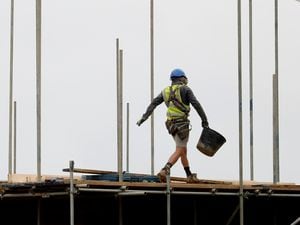Health sees ‘unprecedented’ rise in elderly needing care
THE NUMBER of patients needing critical care this summer has been described as ‘unprecedented’ and occupancy rates overall at the Princess Elizabeth Hospital have gone up 10% in the last year, as the island’s ageing population starts to make its impact felt.

The critical care unit has been full to overflowing during recent months, radiology has seen an increase in demand of 25% in the last 12 months, and community care cases are up 10%.
The St John Ambulance has also reported an exponential increase in call-outs, which often involve elderly people who have experienced falls.
Health & Social Care is predicted to overspend its budget by £5m. this year, and the committee’s president, Heidi Soulsby, stressed that this was not because of poor financial controls, but because of tangible increases in demand for their services across the board.
‘The demand is absolutely growing and it’s real and it’s palpable. These are people who are generally over 85, we’ve had days where the people coming into the hospital through Accident & Emergency have all been over 90, we’ve had days where the occupancy in the critical care unit has all been people over 80.
‘It’s great that people are living longer, it’s something that should be celebrated, but with that comes more conditions that need to be looked after and we’re also finding that there’s more complexity in cases as well.’
The underpinning theme in the growth in demand for services is the ageing demographic, which has been caused by various factors including better survival rates after operations, improved public health initiatives, and advances in technology and medicines.
There is new demand from islanders in their 80s and 90s to have procedures such as hip operations. In the past this was rare.
This generation is showing improved aspirations for quality of life and dignity, alongside a desire to make a valuable contribution to society, for example in voluntary work or looking after grandchildren.
Deputy Soulsby said the ageing population is not something that is going to happen in the future, it is happening now.
‘It was expected, although to be honest it’s come at a faster pace that what we were expecting, but you can really feel it impacting on us. The hospital has never been as full as it is at the moment and our concern is that these are the summer months, what’s going to happen over the winter?’
Linked to the ageing demographic is a need for increased staffing levels on the frontline, and whilst a recruitment campaign has been successful, there has been a need to employ agency nurses as a stopgap, and this has put even more pressure on the budget.
Deputy Soulsby said that after years of disciplined spending their budget was unrealistic and she called for a ‘wider conversation’ about what the community is able and willing to pay to maintain the island’s health and care services.
‘We are going to have to ask for more in our budget next year otherwise we will have to cut services or reduce the quality of services.
‘So there needs to be a review and we have to start that conversation.’
‘It might be that people will say we’re providing far too much and we should reduce it down, or people will say they do want the services and they do want what they’ve grown to expect.’
Although HSC is heading for an overspend this year, Deputy Soulsby underlined that over the last four years the department has made savings and underspends of £8m. and recurring savings this year are nearly £1m.
Further savings will be possible when the digital transformation programme kicks in, but in the meantime health workers have indicated that systems are operating as efficiently as possible and opportunities for savings have all gone.





